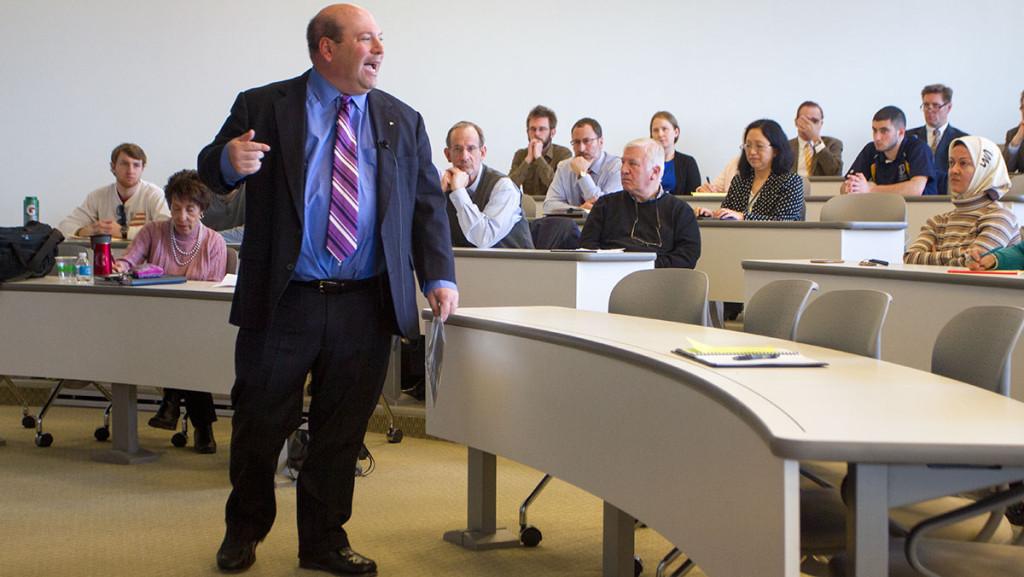Jeff Weiss, adjunct professor of business administration in the Tuck School of Business at Dartmouth College in New Hampshire, presented his ideas about addressing the growing problems in business education and his transition to a leadership role at a business school.
In addition to discussing his personal experience working in global consulting firms — including Vantage Partners, of which he is currently a founding partner and leader in its Alliance Practice and Healthcare group — Weiss outlined his approaches to developing an adaptive business curriculum in the 21st century, presenting to and fielding questions from an audience of faculty and students in the Dorothy D. and Roy H. Park School of Business and Sustainable Enterprise.
Challenges to Address
Weiss followed up discussion of his personal background in business by addressing some of the issues he perceives as being detrimental to a flourishing business school. Among those problems he outlined were the cost and the changing job market.
“Challenge No. 1 is that business education is very expensive,” he said. “Secondly, the labor market has significantly changed. There are fewer jobs for people coming out of college … and earnings are quite different from what they used to be.”
Weiss continued his discussion of challenges by addressing the competition presented by ultimately inferior online courses and the increasingly complex nature of global problems.
“There is no question that open online courses in a range of things that we teach are increasingly available, and they’re pretty good, so that’s a challenge for us,” he said. “And finally, we live in an incredibly complex world where understanding aspects of the global economy, never mind other disciplines like sociology and international relations … all make business education all the more challenging.”
Focus on Knowledge and Skills
Weiss continued his presentation with a discussion of what he believes requires focus in a developing business education. Among those aspects addressed were strong knowledge and skills-based learning cores.
“There is no question in my mind that business education in the 21st century needs to be imbued with serious scholarship,” he said. “If we can find ways to teach … well in the core but also look at how the core integrates across to solve problems … we’d be pursuing something very different. And I think that’s important: to be serious, to be relevant, to be exciting.”
Weiss said the most effective way to shape successful business professionals in the undergraduate level is to create an atmosphere in which a blend of scholarship, research and experience enriches the student experience. By expanding business education across disciplines, he said, a truly exciting program can exist at the college.
Modeling Ethical Behavior
Weiss concluded his presentation by addressing his belief that strong development of ethics and character are vital to a successful business school education.
“We talk about the mission at Ithaca College as developing intellect, creativity and character … I think we may even have an opportunity at the business school to double down on the character piece,” he said. “I believe we can do more in terms of actually teaching leadership aside from the various core aspects of our curriculum. Character can be taught.”








